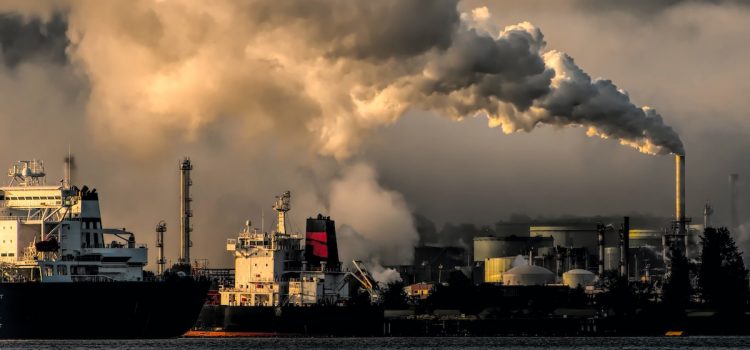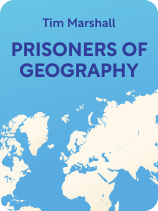

This article is an excerpt from the Shortform book guide to "Prisoners of Geography" by Tim Marshall. Shortform has the world's best summaries and analyses of books you should be reading.
Like this article? Sign up for a free trial here.
What was behind Imperial Japan’s ambitions? Why are some European nations reluctant to oppose Russia?
Journalist Tim Marshall explains how geography shapes how nations interact with one another in his book Prisoners of Geography. He shows how, based on its geography, a nation might need to focus on securing energy resources.
Read on to learn about the fascinating geography of energy.
The Geography of Energy
On the international level, nations compete for access to geographic resources, most often fossil fuel deposits. Nations that lack the resources to power themselves domestically tend to go beyond their borders to secure energy, whether via conquest or trade.
(Shortform note: Experts note that even the wealthiest nations in the world must rely on other nations to secure the resources they need, especially when it comes to energy. As a result of this interdependence, experts stress the need for international cooperation and diplomacy when it comes to sharing resources.)
To illustrate the geography of energy, Marshall points to Japan’s history. While its geography makes it difficult to invade, Japan lacks significant domestic energy sources. As a result, it has historically invaded the Asian mainland in pursuit of resources.
(Shortform note: Some authors have noted that in its overseas ambitions, Japan greatly resembles another small but powerful island nation: the United Kingdom. These authors note that the geography of both nations has shaped their respective histories, pushing both nations to oscillate between isolationism and imperialism.)
While in many cases military tactics are used to access foreign energy sources, some states use economic muscle to get the resources they need.
For example, as China’s economy has expanded, Chinese companies have been looking overseas to secure the energy needed to fuel China’s rapid growth. Marshall notes that many of these companies operate in African nations. While the Chinese strategy of using trade to access African resources is less outwardly violent than historical European colonization, the end result is similar. Africa’s resources and wealth are yet again being funneled away to feed the appetite of the world’s wealthiest nations.
(Shortform note: In addition to creating companies to siphon resources, China has also used debt traps to gain economic power in developing nations around the world. To set up these traps, the Chinese government loans money to smaller, struggling countries, which are unable to pay back the loans. China then uses these debts as political leverage, forcing the smaller states into policies that are amenable to Chinese interests. These kinds of exploitative international economic relations are sometimes referred to as economic imperialism.)
Energy Independence as a Bargaining Chip
According to Marshall, countries that export large amounts of energy can use their relative wealth to influence the countries that depend on them for energy.
Notably, many European nations depend on Russian oil for energy. This makes it difficult for these nations to oppose Russia, in politics or in war, as Russia can choose to cut off its exports to these countries at any time.
(Shortform note: Energy suppliers may not be able to influence other nations if their customers have other energy options. In 2022, shortly after invading Ukraine, the Russian government began implementing policies designed to pressure its customers out of opposing the war. In response, EU nations began an effort to free themselves from dependence on Russian energy, turning to nations such as Azerbaijan and Norway. Commentators note that many countries managed to quickly and successfully transition to these energy suppliers, thereby nullifying the Russian government’s attempts to use its energy reserves as political leverage.)
America’s Energy Independence
While geography has been a historically powerful influence in shaping nations, according to Marshall, modern technology can be used to change and overcome geography.
(Shortform note: While modern technology can overcome geography, geography still shapes life in the modern world. Studies show that even though the internet allows humans across the globe to connect with each other, we still spend most of our time on social media interacting with people who live near us.)
To demonstrate how technology can be used to overcome geography, Marshall describes the impact of modern energy technology in the US. While the US has historically struggled to supply its own energy, advances in technology have allowed it to access its own massive reserves of liquid natural gas. As a result, the US is increasingly energy independent. While it once relied on foreign oil—and fought wars and wrote policy to defend its interests in that oil—its policy has shifted away from this focus as it has gained the ability to generate energy domestically.
(Shortform note: Commentators note that the United States’ increasing energy independence has influenced its foreign policy. In Blowout, Rachel Maddow contends that thanks to its reduced reliance on Saudi Arabian oil, the United States has been able to intervene more freely in the Middle East, without worry about angering its energy suppliers.)

———End of Preview———
Like what you just read? Read the rest of the world's best book summary and analysis of Tim Marshall's "Prisoners of Geography" at Shortform.
Here's what you'll find in our full Prisoners of Geography summary:
- Why some nations thrive and others struggle with poverty and inequality
- How a nation's geography determines its fate
- Why nations are always preparing for international conflict






